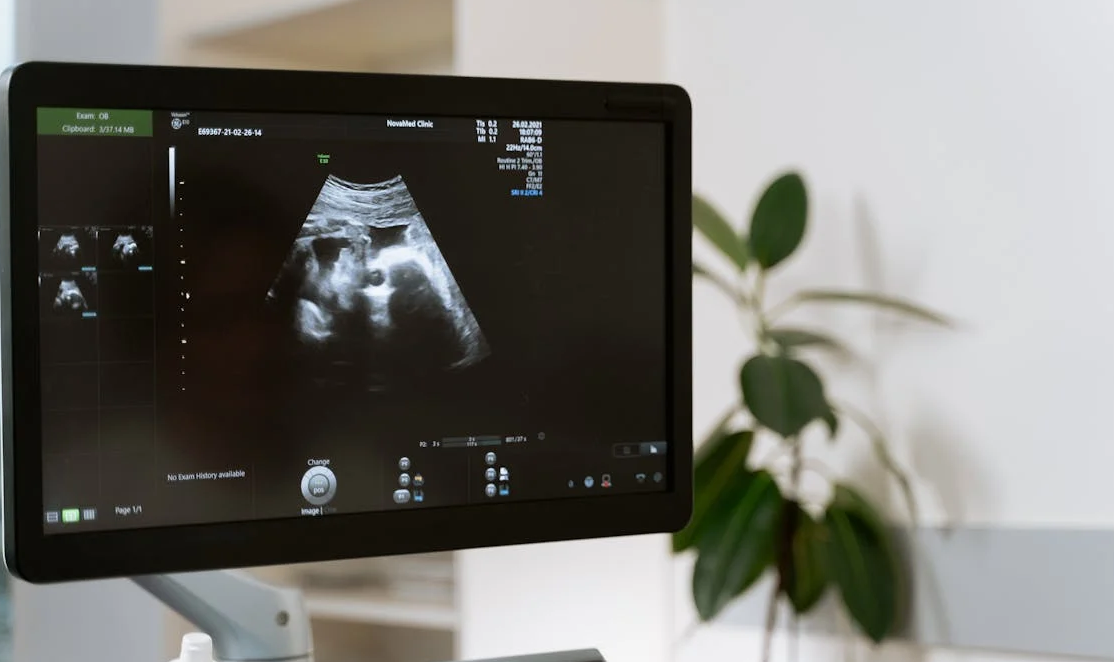Find a Nearby Ultrasound Clinic for Quick & Reliable Scans

When health concerns arise, timely diagnosis can make all the difference. Ultrasound scans have become one of the most common and trusted diagnostic tools across the world. Whether you’re an expectant mother eagerly waiting to see your baby’s first images or someone needing a checkup for abdominal pain or blood flow issues, ultrasounds offer a safe, non-invasive way to look inside the body.
But the question is — where do you find a nearby ultrasound clinic that you can trust? In this guide, we’ll walk you through everything you need to know to find the best ultrasound services close to you — from understanding what ultrasound is, to tips on preparation, and how to select the right clinic.
What is an Ultrasound Scan and Why Is It Important?
Ultrasound, also called sonography, uses high-frequency sound waves to create real-time images of internal organs and tissues. Unlike X-rays or CT scans, it does not use harmful radiation, making it very safe for patients, including pregnant women and children.
Ultrasounds help doctors:
Monitor the development of a fetus during pregnancy.
Diagnose causes of abdominal pain or swelling.
Evaluate the health of organs like liver, kidneys, gallbladder, pancreas, bladder, and reproductive organs.
Check blood flow through vessels using Doppler ultrasound.
Guide doctors during procedures like biopsies.
Because ultrasounds provide instant images, they often allow for quick diagnosis and treatment plans, reducing the need for invasive procedures.
Why Finding a Nearby Ultrasound Clinic Matters
When you’re feeling unwell or need a scan urgently, having an ultrasound clinic close by offers several benefits:
1. Convenience and Reduced Travel Stress
Visiting a clinic nearby means less travel time, fewer transportation hassles, and less waiting time overall. This is especially important for pregnant women, elderly patients, or those with mobility challenges.
2. Quicker Appointments
Clinics closer to your home or workplace often have shorter waiting periods compared to bigger hospitals or centers located far away. Early diagnosis means faster treatment and better outcomes.
3. Cost-Effectiveness
Local clinics generally have more affordable rates than large hospitals. Plus, you save money on travel and other expenses.
4. Better Follow-Up
Proximity allows for easier follow-up visits if needed. You can visit the clinic multiple times without much inconvenience.
How to Search for a Nearby Ultrasound Clinic?
Finding the right clinic can feel overwhelming with so many options available. Here’s a simple step-by-step approach:
Step 1: Use Online Tools
Use Google Maps or healthcare platforms to search terms like “ultrasound clinic near me” or “sonography center nearby.” These tools show you options based on your location, clinic ratings, and reviews.
Step 2: Read Patient Reviews
Patient feedback gives you insight into the clinic’s reliability, cleanliness, staff behavior, and report accuracy. Look for clinics with consistently positive reviews.
Step 3: Check Services Offered
Make sure the clinic offers the type of ultrasound you need — pregnancy scans, abdominal ultrasound, Doppler, pelvic scans, etc.
Step 4: Verify the Equipment and Expertise
Ultrasound accuracy depends on both the machine quality and the technician’s skill. Choose clinics with modern equipment and certified sonographers or radiologists.
Step 5: Ask About Report Turnaround Time
Some clinics provide reports on the same day, while others may take longer. If you need quick results, confirm this beforehand.
Step 6: Compare Costs
Cost varies by clinic and type of scan. Request price details upfront to avoid surprises.
Common Types of Ultrasound Scans You May Need
Knowing what type of scan you require can help narrow your search:
Pregnancy Ultrasound
Used to monitor fetal growth, detect abnormalities, and check the baby’s position. Usually done multiple times during pregnancy.
Abdominal Ultrasound
Examines organs like the liver, kidneys, pancreas, and gallbladder. Used to detect stones, cysts, tumors, or inflammation.
Pelvic Ultrasound
Evaluates uterus, ovaries, and bladder in women; prostate and bladder in men. Useful for diagnosing infections, cysts, or cancer.
Doppler Ultrasound
Assesses blood flow in arteries and veins. Important for detecting blockages, clots, or poor circulation.
Thyroid Ultrasound
Checks the thyroid gland for lumps or irregularities.
Preparing for Your Ultrasound Appointment
Preparation varies depending on the type of ultrasound. Here are some general tips:
Follow Fasting Instructions: For abdominal scans, you may need to fast for 6-8 hours to reduce gas and get clear images.
Drink Water: For pelvic ultrasounds, a full bladder helps improve image quality.
Wear Comfortable Clothing: Loose clothes make it easier for the technician to access the area being scanned.
Bring Previous Reports: If you have any past imaging reports, carry them for comparison.
List of Symptoms: Write down your symptoms or questions to discuss with the sonographer or doctor.
What to Expect During the Ultrasound?
The procedure is usually quick and painless:
You will lie down on an examination table.
A water-based gel is applied to the skin over the area being scanned.
The technician moves a handheld probe (transducer) over the skin to capture images.
You might feel slight pressure but no pain.
The scan typically lasts 15-30 minutes.
After the scan, the gel is wiped off, and you can resume normal activities.
Questions to Ask Your Ultrasound Clinic
What qualifications do your sonographers have?
How soon will I get my results?
Do you provide printed images or digital copies?
What is the cost of the ultrasound and any additional fees?
Are walk-ins allowed, or is appointment booking necessary?
How to Choose the Best Ultrasound Clinic Near You?
Besides location, these factors matter:
Clinic Reputation: Trusted by local doctors and patients.
Hygiene Standards: Clean environment and sanitized equipment.
Patient Comfort: Friendly staff and respectful service.
Availability of Advanced Scans: 3D/4D ultrasounds or Doppler if needed.
Emergency Services: Ability to handle urgent cases if required.
Frequently Asked Questions (FAQs)
-
Is ultrasound safe?
Yes, it is one of the safest imaging methods with no radiation exposure.
-
Can ultrasound detect all problems?
Ultrasound is excellent for soft tissues but may not detect issues in bones or lungs.
-
How accurate are ultrasound reports?
Accuracy depends on the machine quality and technician skill but is generally very reliable.
-
Can I eat before my ultrasound?
Depends on the scan. Abdominal scans usually require fasting; pelvic scans may require a full bladder.
-
How soon will I get my ultrasound report?
Most clinics provide reports the same day or within 24-48 hours.
Conclusion: Take Charge of Your Health with Nearby Ultrasound Clinics
When it comes to your health, quick and accurate diagnosis is essential. Ultrasound scans are affordable, painless, and widely available. By choosing a nearby ultrasound clinic, you minimize delays, reduce stress, and get the care you deserve — close to home.
Use the tips shared here to research and select the best clinic in your area. Don’t hesitate to ask questions and prepare well before your appointment. Your health journey starts with that first scan!

Leave a Comment